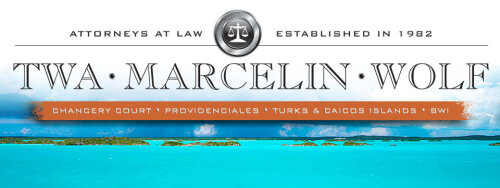Best Debt Capital Markets Lawyers in Turks and Caicos Islands
Share your needs with us, get contacted by law firms.
Free. Takes 2 min.
Or refine your search by selecting a city:
List of the best lawyers in Turks and Caicos Islands
About Debt Capital Markets Law in Turks and Caicos Islands
Debt Capital Markets (DCM) in the Turks and Caicos Islands allow businesses, financial institutions, and governments to raise funds through the issuance and trading of debt securities such as bonds, notes, and other instruments. The Turks and Caicos Islands is an established offshore financial center recognized for its flexible legal framework and tax-neutral environment. These features make it attractive for structuring cross-border financing solutions, securitizations, and private placements. While the financial sector is smaller than in some other jurisdictions, the Turks and Caicos Islands continues to offer robust services for both domestic and international clients seeking debt capital market structures.
Why You May Need a Lawyer
Navigating the Debt Capital Markets in the Turks and Caicos Islands involves a range of regulatory, transactional, and compliance requirements. You may need a lawyer for the following situations:
- Structuring and issuing bonds or other debt securities
- Advising on the suitability of the Turks and Caicos Islands for a proposed DCM transaction
- Ensuring compliance with local regulations and anti-money laundering requirements
- Drafting and reviewing financing and security documentation
- Facilitating cross-border transactions involving multiple jurisdictions
- Advising on tax implications and reporting obligations
- Assisting with regulatory filings and approvals
- Handling restructurings, defaults, or enforcement of debt instruments
- Representing investors or issuers in disputes arising out of DCM transactions
A lawyer with experience in Turks and Caicos Islands DCM law can provide guidance and help mitigate risks related to complex financial transactions.
Local Laws Overview
The legal regime governing Debt Capital Markets in the Turks and Caicos Islands is influenced by both domestic law and English common law. Significant features include:
- Flexible Corporate Vehicles - The jurisdiction offers various types of legal entities, including International Business Companies (IBCs), which can be used for issuing debt instruments.
- Financial Services Commission - The Turks and Caicos Islands Financial Services Commission (TCIFSC) oversees licensing and regulation of financial activities, including capital markets transactions.
- Creditors’ Rights and Security - The legal framework supports various types of security interests, including charges over assets, pledges, and guarantees, with mechanisms for enforcement in the event of default.
- Tax Neutrality - There are no direct taxes on corporate income, capital gains, or withholding taxes, which makes the jurisdiction tax-efficient for debt capital market transactions.
- Compliance and AML - Strict anti-money laundering, counter-terrorist financing, and know-your-customer requirements apply to DCM transactions, with significant penalties for breaches.
- Cross-Border Recognition - The strong legal system and international reputation of the Turks and Caicos Islands promote the recognition and enforceability of DCM agreements in other countries.
Frequently Asked Questions
What is the minimum requirement for issuing debt securities in the Turks and Caicos Islands?
There are no statutory minimum capital requirements for issuing debt securities, but issuers must comply with regulatory and anti-money laundering standards set by the Financial Services Commission.
Can international investors participate in DCM transactions in the Turks and Caicos Islands?
Yes, the jurisdiction is open to international investors, and legal structures are frequently used for cross-border DCM deals.
Do debt instruments need to be listed on a stock exchange?
Debt instruments may be privately placed or listed. The Turks and Caicos Islands does not have its own stock exchange, but securities can be listed elsewhere if desired.
What are the main regulatory bodies overseeing DCM in the Turks and Caicos Islands?
The Turks and Caicos Islands Financial Services Commission is the primary regulator for financial services, including DCM.
Are there any restrictions on the types of entities that can issue debt securities?
Most types of companies, including International Business Companies, can issue debt securities, provided they comply with local laws and their own constitutional documents.
What documentation is required for a typical DCM transaction?
Common documentation includes the information memorandum or prospectus, subscription agreements, trust or agency agreements, and security documents, which must all comply with local legal requirements.
How is investor protection ensured in the Turks and Caicos Islands?
Investor protections come from clear regulations, disclosure requirements, and a legal framework that upholds creditors’ rights in the event of a dispute or default.
What compliance requirements apply to DCM transactions?
Issuers and participants must follow anti-money laundering laws, conduct proper due diligence, and uphold international compliance standards.
Are there any taxes on interest or gains from debt instruments?
The Turks and Caicos Islands has no income tax, capital gains tax, or withholding tax on interest or gains received from debt instruments.
How long does it take to establish a DCM transaction in the Turks and Caicos Islands?
The timeframe varies depending on complexity, but straightforward transactions can often be completed within weeks, provided all compliance checks and documentation are in order.
Additional Resources
- Turks and Caicos Islands Financial Services Commission (TCIFSC) - Regulator for financial services offering guidance on regulations and compliance.
- Government of Turks and Caicos Islands - Official platform for legislative and regulatory information.
- Local Law Firms Specializing in Financial Services - Many reputable firms offer dedicated DCM advice.
- Industry Publications - Various financial and legal journals provide updates on DCM trends in the region.
Next Steps
If you require legal advice for any aspect of Debt Capital Markets in the Turks and Caicos Islands, consider the following steps:
- Identify your transaction objectives and gather all relevant information.
- Consult a local law firm with expertise in DCM matters for an initial assessment of your needs.
- Clearly communicate your goals, timeline, and any cross-border aspects to your legal counsel.
- Request a clear outline of the services provided, expected costs, and timelines before engaging legal assistance.
- Ensure you understand compliance requirements and maintain proper documentation throughout the process.
Taking these practical steps will help you navigate DCM transactions confidently and ensure compliance with all legal and regulatory obligations in the Turks and Caicos Islands.
Lawzana helps you find the best lawyers and law firms in Turks and Caicos Islands through a curated and pre-screened list of qualified legal professionals. Our platform offers rankings and detailed profiles of attorneys and law firms, allowing you to compare based on practice areas, including Debt Capital Markets, experience, and client feedback.
Each profile includes a description of the firm's areas of practice, client reviews, team members and partners, year of establishment, spoken languages, office locations, contact information, social media presence, and any published articles or resources. Most firms on our platform speak English and are experienced in both local and international legal matters.
Get a quote from top-rated law firms in Turks and Caicos Islands — quickly, securely, and without unnecessary hassle.
Disclaimer:
The information provided on this page is for general informational purposes only and does not constitute legal advice. While we strive to ensure the accuracy and relevance of the content, legal information may change over time, and interpretations of the law can vary. You should always consult with a qualified legal professional for advice specific to your situation.
We disclaim all liability for actions taken or not taken based on the content of this page. If you believe any information is incorrect or outdated, please contact us, and we will review and update it where appropriate.
Browse debt capital markets law firms by city in Turks and Caicos Islands
Refine your search by selecting a city.














